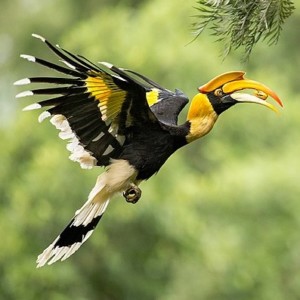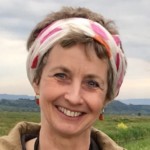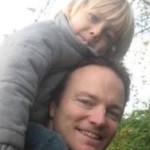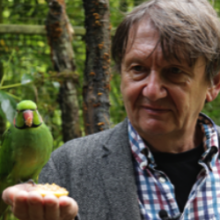#BOU2021 – Resources
 Restoring Bird Populations
Restoring Bird Populations
30 March – 1 April 2021
supported by
RSPB Centre for Conservation Science
Endangered Landscapes Programme
Wildfowl & Wetlands Trust
Institute of Zoology, Zoological Society of London
Attendee resources
ATTENDEE GUIDE (PDF guide to all you need to know about your attendance)
PROGRAMME (PDF)
ABSTRACTS (PDF)
ONLINE SCHEDULE APP (with built in time converter)
SLACK GUIDE (user guide to our online networking app)
SLACK APP (link to our online networking app)
NETWORKING WALL (see who’s attending BOU2021 and remember to add your own biography)
CODE OF CONDUCT
WORLD CLOCK (for UTC time conversion to your local time)
Important note: all times given on these conference pages are UTC. Use the above online scheduler app or ensure you check your local time for the event here.
Reminder: you have been sent five separate emails from Steve Dudley (BOU) via Zoom with access links to each Zoom session (Day 1 – sessions 1 & 2; Day 2 – sessions 3 & 4; Day 2 – BOU AGM; Day 2 – Alfred Newton Lecture; and Day 3 – sessions 5 & 6). Keep these emails safe as they are personalised to you. If you have lost any of these emails then contact Steve Dudley.
BOU2021 recordings: the meeting will be recorded and registration includes access to the session recordings and Alfred Newton Lecture from 6 April – 30 June. We will send you a link to these recordings on 6 April.
Going global – going virtual – going parallel format!
Following the success of our dual Zoom and Twitter format conference in November (#BOUSci20 – Climate change and birds: solutions to the crisis) we’re now adopting the dual platform format for all our events. This not only delivers a much larger audience from right around the world on Twitter, but importantly, provides a free social platform option for all our events for those who can’t afford to attend.
With this format all the Zoom presenters will also tweet a summary of their presentation on the conference tag on Twitter and we’ll also aim to have some Twitter-only presentations during the Zoom programme breaks.
Conference aims and scope
The natural world is under huge pressure from human activity, placing bird populations and their habitats at risk. At the same time, there is growing recognition that avian conservation should look beyond slowing species’ declines and avoiding extinction, to actively restoring avian abundance and diversity in landscapes and working to restore whole ecosystems. Despite the challenges facing nature, our understanding of how to restore species and ecosystems has never been greater, and the momentum for ecological restoration is building globally.
Restoring bird populations requires working at a range of scales, from individual animals to whole ecosystems, and from local sites to whole flyways. Birds can be indicators of recovery trajectories for entire ecosystems and can be integral to the success of habitat restoration, for example through their functional roles as predators, scavengers and dispersal agents.
This landmark international conference will bring together the latest science underpinning the restoration of bird species and their ecosystems, focussing on successes, challenges and future directions. This 2020 event coincides with a milestone year for assessing Aichi targets for biodiversity conservation, and comes on the eve of the UN Decade of Ecosystem Restoration that will run from 2021-2030. It will be of broad interest to conservation-, population- and community-ecologists, practitioners and policy makers.
The conference will aim to cover the following topics:
- Restoring bird populations through habitat and ecosystem restoration – managed restoration, rewilding and connectivity;
- Population reintroduction and reinforcement – the science of translocation, headstarting and other population management strategies;
- Control of invasive species and restoring community structure;
- The functional role of birds in ecosystem restoration;
- Progress towards Aichi biodiversity targets and government commitments to restoration.
Alfred Newton Lecture
Process and progress in the conservation of endangered species
Professor Carl Jones
Durrell Wildlife Conservation Trust
View profile
Carl has been a conservation pioneer for decades, rescuing species from extinction and restoring their habitats.
The Alfred Newton Lecture was established in 1994 to celebrate the BOU’s founder, and is awarded by the BOU to an internationally renowned figure to address a BOU annual conference on a key topic of the conference theme.
Keynote speakers
 Mary Colwell | @curlewcalls
Mary Colwell | @curlewcalls
Freelance Producer and Writer, UK
Cultural and social values in restoring bird populations
– why this matters
 Nicola Crockford | @numenini
Nicola Crockford | @numenini
RSPB, UK
Working with governments to restore migratory
birds and their habitats
 John Ewen | @hihinews
John Ewen | @hihinews
Institute of Zoology (IoZ),
Zoological Society of London (ZSL), UK
Population reintroduction and reinforcement
 Joe Tobias | @ja_tobias
Joe Tobias | @ja_tobias
Imperial College London, UK
The role of birds in ecosystem restoration:
ecological functions, networks and interactions
 Karen Varnham
Karen Varnham
RSPB, UK
Island restoration to benefit seabirds:
what have we done so far and what can we do better?
Scientific Programme Organisers
David Douglas | RSPB Centre for Conservation Science, UK
Nancy Ockendon | Endangered Landscapes Programme (ELP), UK
Geoff Hilton | Wildfowl & Wetlands Trust (WWT), UK
Amanda Trask | Institute of Zoology (IoZ), Zoological Society of London (ZSL), UK
Image Credits
Female Great Hornbill | Angadachappa | CC BY SA 4.0 via ky.m.wikipedia.org


